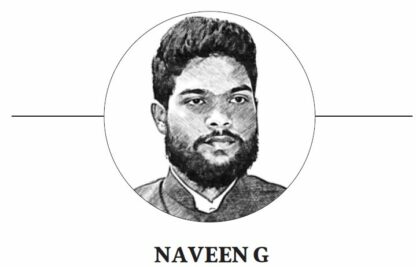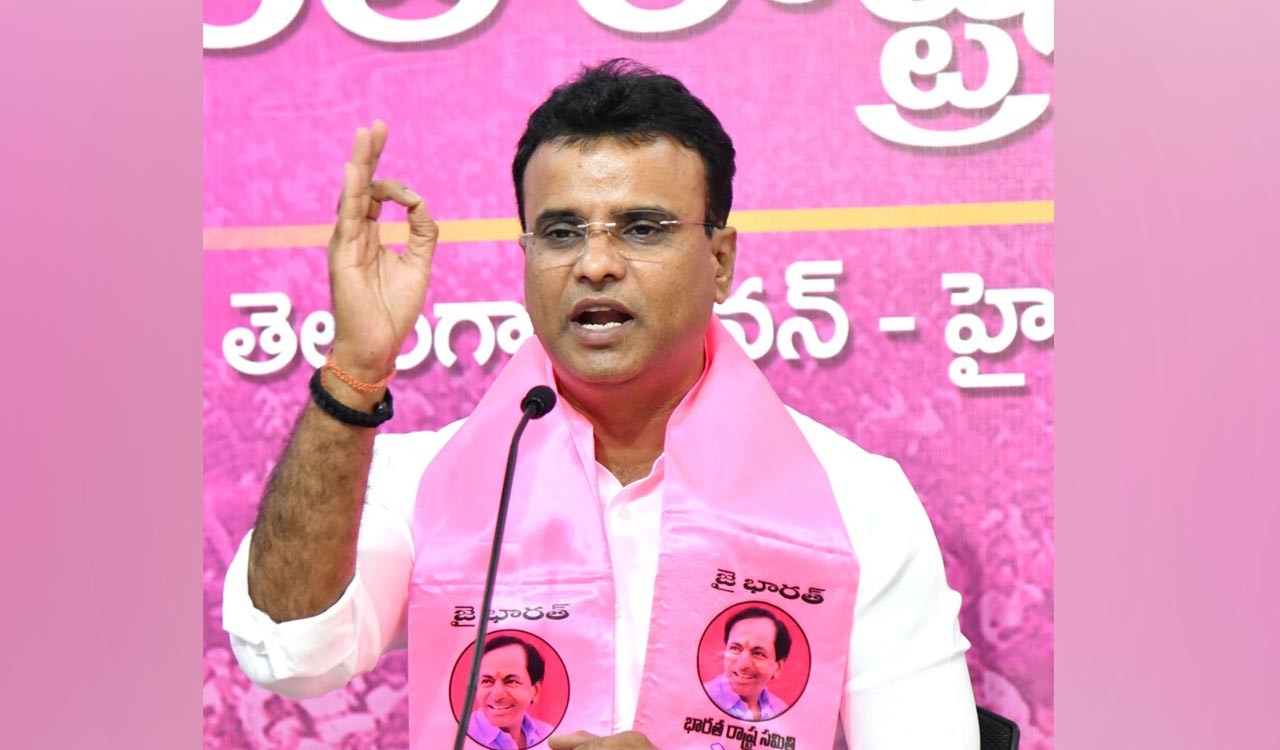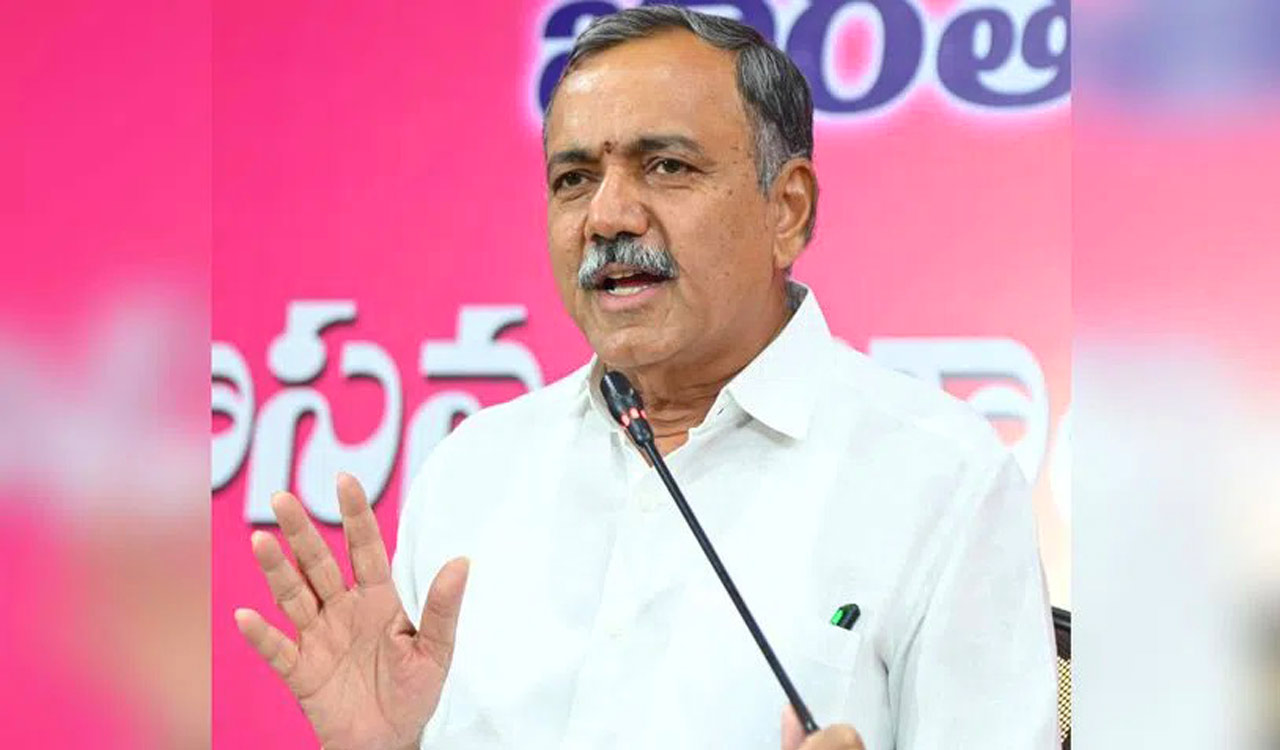Opinion: Don’t sideline Madigas
Despite Congress’ emphasis on social justice and inclusion, its approach in Telangana seems to be at odds with these principles

By Naveen G
In the evolving political landscape of Telangana, the Congress’ approach to caste representation has come under sharp scrutiny, particularly regarding the Madiga community, a significant Dalit group. The community, already marginalised socially and economically, finds itself politically sidelined as well. This neglect is evident in the distribution of top political positions within the Congress’ State wing and the composition of the newly formed State government, where key ministries are predominantly controlled by upper-caste individuals, particularly from the Reddy community.
Current Scenario
The formation of Telangana in 2014 was a historic moment, raising hopes for more inclusive governance that would address the aspirations of marginalised communities. However, the reality has been quite the opposite. The then BRS government neglected the entire Madiga community by not giving them significant positions. Now the newly formed Congress government, in its bid to regain political ground, seems to have leaned heavily on the upper-caste leadership, sidelining significant segments of its base, particularly among the Madiga community. This strategic oversight has not only alienated a crucial voter base but also exposed the party to severe criticism for perpetuating the very inequalities it claims to fight against.
During the recent Assembly elections, Prime Minister Narendra Modi’s public endorsement of Manda Krishna Madiga and the announcement of a committee to examine the Madiga demand significantly influenced the community’s political leanings, bolstering BJP’s position.
The underrepresentation of the Madiga community in the Congress government, led by Revanth Reddy, has led to widespread dissatisfaction and anger among the Madigas, who see this as a continuation of their historical exclusion from mainstream political processes. The lack of representation in decision-making means that the pressing issues facing the community, from education and employment to social justice, remain unaddressed. Telangana’s SC population, as per the 2011 census, is 54,32,680, with Madigas comprising 32,33,642. An integrated household survey in 2014 estimated the SC population at about 18% of the State’s population. Despite this significant demographic presence, political parties have largely overlooked the community in ticket distribution for both the 2023 Assembly and 2024 Lok Sabha elections. The Congress’ allocation of reserved seats to more Mala candidates and other sub-caste candidates has deepened the feeling of neglect among the Madigas.
Sociopolitical Implications
This improper sociopolitical engineering is not just a moral failure but a strategic blunder for the Congress. The discontent brewing among the Madigas has significant electoral implications. Historically, loyal voter bases are feeling betrayed and this sentiment is being astutely capitalised on by rival parties like the Bharatiya Janata Party (BJP) by making concerted efforts to woo the community, promising better representation and addressing their specific grievances.
The then BRS, under the leadership of Chief Minister K Chandrashekar Rao, had launched several initiatives aimed at the uplift of the Dalit communities, including the Madigas. Though often criticised for their implementation, these initiatives reflect an awareness of the importance of inclusivity. The BJP, similarly, is making inroads by positioning itself as a party committed to social justice and equality, leveraging the Congress’ neglect, to build its base among the Madigas.
Growing Frustration
Empirical data highlights the growing frustration within the Madiga community. Of the 17 Lok Sabha seats in Telangana, three of them, namely, Peddapalli, Warangal and Nagarkurnool, are reserved for SCs and STs. The Congress allotted these seats to non-Madigas, while the BRS gave only one ticket to a Madiga candidate. This has led to a significant shift in their support, with many now viewing the BJP as a viable alternative.
The BJP’s strategic wooing of the Madiga community was evident in its allocation of two tickets to Madiga candidates for the Lok Sabha polls. The party’s visible efforts, including Prime Minister Narendra Modi’s engagement with Madiga leaders like Manda Krishna Madiga, further solidified this shift. The BJP’s promise of addressing the SC categorisation demands of the Madiga community resonated well with the voters.
The underrepresentation of Madigas in the Revanth Reddy-led govt has led to widespread dissatisfaction and anger among the community
The BJP strategically capitalised on the discontent within the Madiga community. By fielding two Madiga leaders, Aroori Ramesh in Warangal and P Bharat in Nagarkurnool, the BJP demonstrated a tangible commitment to Madiga representation. This, along with Modi’s assurance to them regarding SC sub-categorisation, resonated well with the community, leading to a notable shift in their political support towards the party. This strategy resulted in an increase in the BJP’s Lok Sabha seats from 4 to 8.
Pluralistic Society
The Congress’ failure to appropriately include the Madiga community in its political framework highlights a broader issue of caste dynamics in politics. For any political entity to thrive in a diverse and pluralistic society, it must genuinely embrace and empower all communities, particularly those historically marginalised. Token gestures are no longer sufficient in an era where voters are increasingly aware and vocal about their rights and representation.
The Congress must urgently reassess its strategies and adopt a more inclusive approach if it wishes to regain its standing in Telangana. This means not only increasing the representation of the Madiga community in key positions but also ensuring that their voices and concerns are integral to policy-making processes. Genuine engagement with community leaders, addressing socioeconomic disparities and providing tangible opportunities for advancement are essential steps toward rebuilding trust and support.
The political neglect of the Madiga community by the Congress in Telangana is a glaring oversight that is being effectively exploited by the BRS and the BJP. For the Congress to revive its prospects, it must go beyond mere rhetoric and demonstrate a real commitment to inclusive governance. It is high time the Congress recognised the importance of the Madiga community and gave them high-key decision-making roles within the party. By doing so, it can not only regain the trust and support of the community but also secure a crucial voter base.
The underrepresentation of the Madiga community in both the Congress’ internal hierarchy and the State government reflects a broader issue of systemic exclusion. Despite the Congress’ historical emphasis on social justice and inclusion, its current approach in Telangana seems to be at odds with these principles. The allocation of key decision-making roles to upper-caste leaders while neglecting the demands, aspirations and mainstream representation of leaders of lower-caste groups like the Madigas has created a significant rift among the masses.
The Congress must reassess its strategies and recommit to its foundational principles of social justice and equitable representation which will secure its future in Telangana’s political landscape. It has an opportunity to demonstrate a real commitment to inclusive governance.

(The author is a student of University of Hyderabad)
Related News
-
Disqualification of BRS turncoat MLAs inevitable, elections soon, says KP Vivekanand
-
Auto drivers and unions join BRS signature campaign for SCB merger in Secunderabad Cantonment
-
TSWREIS alumni shine as India wins gold at Indo-Indonesia Ball Badminton Series
-
BRS slams Congress for making mockery of Constitution
-
Odisha government reviews protection of Lord Jagannath temple lands
6 hours ago -
Iran holds military drills with Russia as US carrier moves closer
6 hours ago -
This is taxpayers’ money: Supreme Court raps freebies culture
7 hours ago -
Hyderabad: Residents oppose Gandhi Sarovar Project over ‘forcible’ land acquisition
7 hours ago -
Australia level series as Indian women slide to 19-run defeat in second T20I
7 hours ago -
Karnataka beat Uttarakhand in semis, to face Jammu and Kashmir in Ranji final
7 hours ago -
Five Osmania varsity players in South Zone squad for Vizzy Trophy
7 hours ago -
Disciplined West Indies bundle out Italy with ease, tops Group C in T20 WC
7 hours ago



